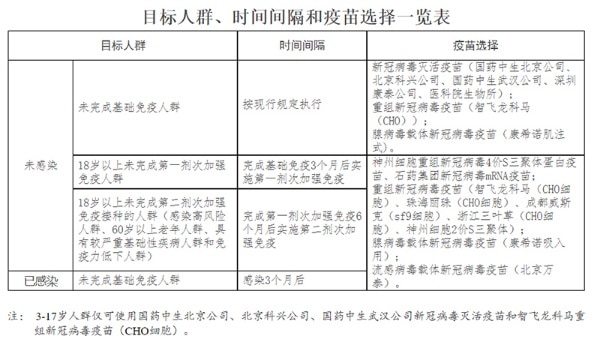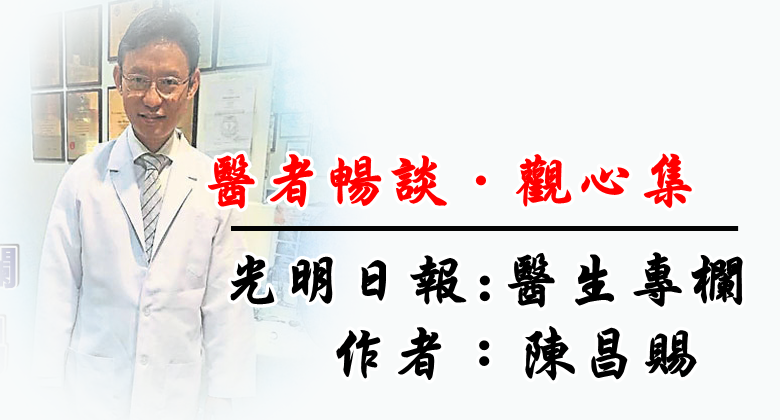Who needs to be vaccinated?The latest new crown vaccination work plan released

The Comprehensive Group of the Joint Prevention and Control Mechanism of the State Council in Response to the Novel Coronavirus Infection Epidemic has recently issued the “Vaccination Work Plan for Responding to the Recent Novel Coronavirus Infection Epidemic” (hereinafter referred to as the “Plan”). The “Plan” clarifies that the focus of vaccination at this stage is to fill the gap in immunity levels for different target groups and further reduce the risk of severe illness and death.
Target groups include:
People who are not infected and have not completed the established immunization procedures. Including people aged 3-17 who have not been infected and have not completed the basic immunization, people who have not been infected and have not completed the first dose of booster immunization over the age of 18, and people who have not been infected and have not completed the second dose of booster immunization over the age of 18 (High-risk groups of infection, people over 60 years old, people with serious underlying diseases and people with low immunity);
People who have been infected but have not completed basic immunization.
In addition, according to the “Proposal”, in terms of time interval, the uninfected target population should complete subsequent doses of vaccination in accordance with the established immunization procedures and time interval requirements. Among them, for people over the age of 18 who have completed basic immunization, the time interval for the first dose of booster immunization is adjusted to more than 3 months;
People who have been infected but have not completed basic immunization can receive a dose of vaccine 3 months after infection.
In terms of vaccine selection, Shenzhou Cell recombinant new coronavirus 4-valent S trimer protein vaccine and CSPC new coronavirus mRNA vaccine have been included in emergency use, and can be used for booster immunization of people over 18 years old.
The vaccines used for the basic immunization of the uninfected target population shall be implemented in accordance with the relevant requirements in the previous period. For enhanced immunization, it is recommended to use the recombinant new coronavirus 4-valent S trimer protein vaccine of Shenzhou Cell and the new coronavirus mRNA vaccine of CSPC, and other established vaccines can also be selected. Recombinant protein vaccines or viral vector vaccines approved for conditional marketing or included in emergency use for sequential booster immunization.
People over the age of 18 who have been infected and have not completed the basic immunization are given priority to use the recombinant new coronavirus 4-valent S trimer protein vaccine of Shenzhou cells, the new coronavirus mRNA vaccine of CSPC, or other approved conditions for marketing or Include recombinant protein vaccines or viral vector vaccinations for emergency use. For people aged 3-17 who have been infected and have not completed basic immunization, the vaccines used for vaccination shall be implemented in accordance with the relevant requirements of the previous period.
In the follow-up, according to the progress of vaccine research and development and approval, combined with the epidemic situation, virus mutation and other conditions, timely research and adjustment of vaccination strategies will be made.
Attachment: Questions and answers on the interpretation of the “Vaccination Work Plan for Responding to the Recent Novel Coronavirus Infection”
Questions and answers on the interpretation of the “Vaccination Work Plan for Responding to the Recent Novel Coronavirus Infection”
1. Our country has already experienced a round of nationwide epidemics. Why do we still need to be vaccinated against the new crown virus?
At present, the overall epidemic situation in the whole country is in a sporadic state, but the new coronavirus has not disappeared, and the spread of the virus among the population still exists. There are still gaps in the level of immunity of different populations. In the previous epidemic, people who were not infected and have not completed the established immunization procedures still have the risk of infection and developing severe disease in the future; people who have been infected and have not completed basic immunity, due to insufficient antigenic stimulation induced by vaccines or viruses, the immune protection effect It is also significantly weaker than the mixed immunity obtained after basic immunization and then infection. In addition, protective antibodies will attenuate over time. At this stage, some people still need to be vaccinated to further strengthen their own immunity, make up for the gap in immunity, and reduce the risk of severe illness and death that may occur in the future.
2. Which groups of people need to be vaccinated? How do I know if I need to be vaccinated?
In the early stage, based on the progress of vaccine research and development and the risk of disease in specific groups of people, differentiated vaccine immunization procedures were formulated for different groups of people. Specifically, people aged 3-17 need to complete the basic immunization of 2 doses of inactivated vaccine or 3 doses of Zhifei recombinant protein vaccine; Risk groups, people over 60 years old, people with more serious underlying diseases and people with low immunity need to complete the second dose of booster immunization.
As the epidemic situation changes, the need for vaccination at this stage should be determined based on factors such as infection status, previous vaccination history, age, and physical condition. If you have not been infected in the previous outbreak, but have not completed the established immunization program, you need to continue to complete the subsequent doses of vaccination. If you have been infected in the previous epidemic, but have not completed basic immunity before infection, you need to receive a dose of vaccine after 3 months of infection. Whether you have ever been infected can be comprehensively judged by the results of the new coronavirus nucleic acid or antigen test, whether you have symptoms related to new coronavirus infection such as fever and cough, and have an epidemiological history (unprotected contact with the infected person, etc.).
The results of the study show that people who experience natural infection after basic immunization and those who have completed the established immunization program can produce better immune protection through repeated antigen stimulation. For this group of people, the effect of re-vaccination in a short period of time is limited, and it is not necessary to continue vaccination for the time being. Follow-up will determine whether the relevant population needs to continue to be vaccinated based on the virus mutation and the progress of vaccine research and development.
3. How should eligible people be vaccinated?
A number of technical routes of new coronavirus vaccines have been approved for use in my country. The results of the study show that sequential immunization can provide individuals with more comprehensive protection. Therefore, if an inactivated vaccine has been vaccinated in the early stage, it is recommended to choose a recombinant protein vaccine or a viral vector novel coronavirus vaccine (inhaled adenoviral vector novel coronavirus vaccine and influenza virus vector novel coronavirus vaccine) for booster immunization or post-infection vaccination.
In addition, Shenzhou Cell’s recombinant new coronavirus 4-valent S trimer protein vaccine and CSPC’s new coronavirus mRNA vaccine have recently been approved for emergency use, and can be used for booster immunization of people over 18 years old. According to the recommendations of the vaccine research and development team of the Joint Defense and Joint Control Mechanism of the State Council, the Shenzhou cell recombinant new coronavirus 4-valent S trimer protein vaccine contains four variants of the new coronavirus Alpha, Beta, Delta, Omicron (BA.1) For the antigenic component, CSPC’s new coronavirus mRNA vaccine covers the core mutation site of Omicron, and has a better cross-protection effect on Omicron strains. Considering the risk of virus infection that may occur at any time, it is recommended that eligible people can complete vaccination as soon as possible after meeting the time interval requirements without waiting for a specific vaccine.
4. Why should eligible people be vaccinated 3 months after infection?
Protective antibodies acquired through vaccination and infection decay over time. Regarding the vaccination time of the new coronavirus vaccine for infected people, the World Health Organization and major institutions and countries such as the United States, the United Kingdom, and Germany all recommend vaccination 3-6 months after infection. From a global perspective, it is a consensus to vaccinate against the new coronavirus 3 months after infection, which will help provide better protection for people at high risk of severe illness and death in possible subsequent outbreaks.

![[Love Wants Sexual Happiness Series 358]Find the culprit and overcome psychogenic erectile dysfunction. Don’t let pressure affect your sexual happiness. [Love Wants Sexual Happiness Series 358]Find the culprit and overcome psychogenic erectile dysfunction. Don’t let pressure affect your sexual happiness.](https://webcdn.guangming.com.my/wp-content/uploads/2024/04/171111-780x420.jpg)

![[Wanqingyi Care]My health, my rights, customized medical methods in the last stage of life [Wanqingyi Care]My health, my rights, customized medical methods in the last stage of life](https://webcdn.guangming.com.my/wp-content/uploads/2024/04/ZZ1-100-780x420.jpg)
![[Kidney Transplantation Special Topic]The survival rate of transplanted kidneys is high without dialysis treatment three times a week [Kidney Transplantation Special Topic]The survival rate of transplanted kidneys is high without dialysis treatment three times a week](https://webcdn.guangming.com.my/wp-content/uploads/2024/04/1311-780x420.jpg)



